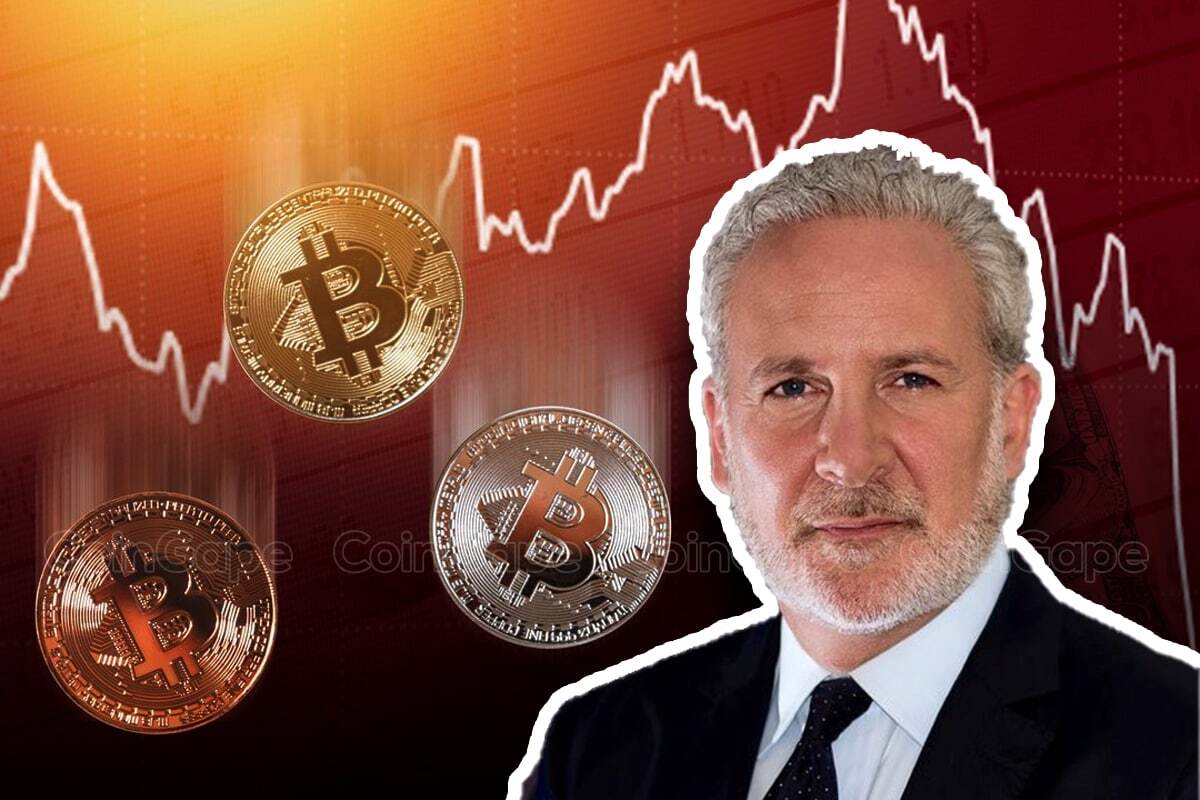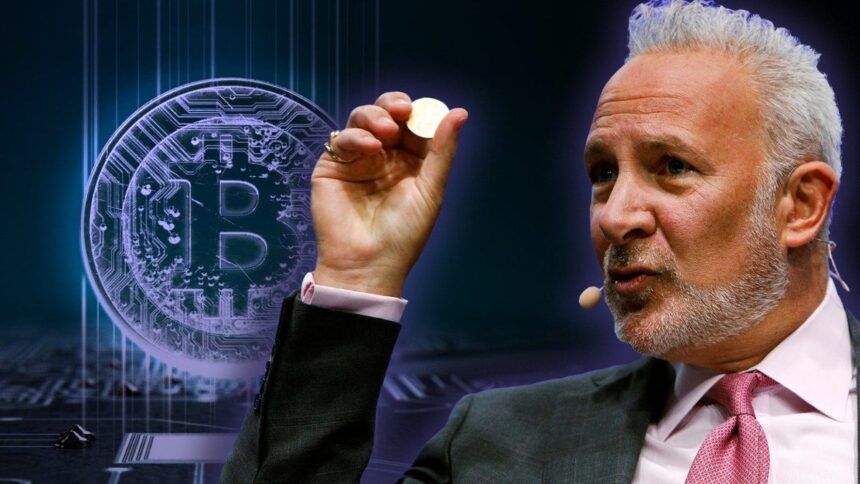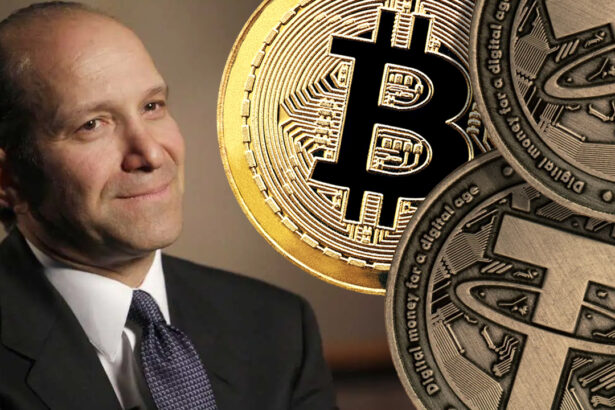Crypto Critic Peter Schiff: Peter Schiff, the well-known critic of cryptocurrencies and advocate for traditional investments, has once again stirred controversy, this time by targeting former President Donald Trump’s economic and financial plans. Schiff has built a reputation for his outspoken views on gold, and fiat currencies. Can the New Google Willow Quantum Chip Hack Bitcoin? And cryptocurrencies is now vocalizing his concerns over Trump’s proposed policies and their potential impact on the economy.
Peter Schiff’s Continued Criticism of Cryptocurrency
Peter Schiff has been a vocal critic of cryptocurrencies, particularly Bitcoin, for years. He has repeatedly warned that Bitcoin is a speculative bubble and that its value is ultimately unsustainable. Instead, Schiff advocates for investing in physical assets like gold, which he believes will maintain their value in the face of economic uncertainty.
Despite the growing mainstream acceptance of digital currencies, Schiff has remained steadfast in his belief that the crypto market is an illusion, and his comments on Bitcoin and other cryptocurrencies have frequently stirred debates within the financial community.
Schiff’s Critique of Trump’s Economic Plans
Peter Schiff’s latest criticism, however, is not aimed at cryptocurrencies, but at the economic proposals put forth by former President Donald Trump, especially those related to tax cuts, economic growth, and the nation’s debt. Schiff has expressed concerns that Trump’s economic strategies, particularly his focus on tax cuts and deregulation, could exacerbate the country’s financial instability.
Schiff argues that Trump’s approach would likely lead to increased inflation, a growing national debt, and potential economic collapse. He points to the historical impact of large government spending and the rise of budget deficits as warning signs of long-term financial instability.
Schiff believes that these policies would continue the trend of excessive government spending, which he views as unsustainable. His criticism is not just limited to Trump’s past administration but extends to any economic policy that ignores the potential consequences of high debt and inflation.
The Battle Between Traditional Finance and Cryptocurrencies
 While Schiff’s comments on Trump’s policies focus on traditional economic concerns, they also tie into his broader worldview that values physical assets over digital ones. Schiff is deeply concerned about the rapid growth of the cryptocurrency market, particularly Bitcoin, and its potential to disrupt traditional financial systems.
While Schiff’s comments on Trump’s policies focus on traditional economic concerns, they also tie into his broader worldview that values physical assets over digital ones. Schiff is deeply concerned about the rapid growth of the cryptocurrency market, particularly Bitcoin, and its potential to disrupt traditional financial systems.
For Schiff, the Trump administration’s potential embrace of cryptocurrency, which he has previously suggested, would add to his economic concerns. He argues that the rise of digital currencies—paired with aggressive fiscal policies like tax cuts and increased government spending—could destabilize both traditional financial markets and the burgeoning crypto market.
Schiff sees Bitcoin and other cryptocurrencies as volatile, speculative assets. That could lead to financial ruin for investors if they are not properly managed. This view is in stark contrast to the belief held by many cryptocurrency advocates who see digital assets as a hedge against inflation and a store of value.
Is Schiff’s Concern Justified?
Critics of Schiff’s economic predictions often argue that his views are too rooted in traditional financial thinking. Which may not account for the new realities of the digital economy. Trump’s tax policies and Schiff’s concerns about government debt could, in fact, encourage the continued growth of alternative assets like cryptocurrency. Which many see as an escape from inflationary policies and a safeguard against traditional banking system instability.
Moreover, Schiff’s ongoing criticism of Bitcoin as a speculative bubble is increasingly. Challenged by the growing adoption of cryptocurrencies in mainstream finance. Big companies, hedge funds, and institutional investors have started embracing. Bitcoin as a store of value, further pushing back against Schiff’s predictions that cryptocurrencies are inherently flawed.
However, Schiff remains committed to his long-held belief in the superiority of gold and traditional investment models. Viewing them as safer long-term options compared to the volatility of digital assets.
The Future of Trump’s Economic Plans and Cryptocurrency
As Schiff continues to criticize both the Trump administration’s economic policies and the rise of digital currencies. The future of these two issues remains uncertain. If Trump’s plans to boost economic growth and reduce taxes are put into place, they may lead to increased debt and inflation, as Schiff warns. On the other hand. The growing interest in cryptocurrencies could offer a new form of financial security for those seeking alternatives to traditional financial systems.
The debate between traditional finance advocates. Like Peter Schiff crypto enthusiasts are unlikely to subside anytime soon. With increasing interest in both cryptocurrencies and new economic policies under political figures like Trump, the tension between these opposing views will continue to shape the future of finance, investments, and government policy.
Conclusion
Peter Schiff’s attack on Trump’s economic plans adds another layer to the ongoing. Debate between traditional finance and the rapidly evolving world of cryptocurrencies. Schiff’s continued skepticism of digital currencies. Paired with his concerns about Trump’s tax and spending policies, shows his deep commitment to his investment philosophy of gold and physical assets.
As the cryptocurrency market continues to grow and evolve, and as political and economic leaders propose new policies to address current challenges, the clash between Schiff’s views and those of cryptocurrency advocates. Will remain a defining feature of the financial landscape in the years to come.






